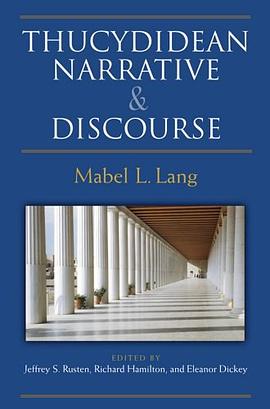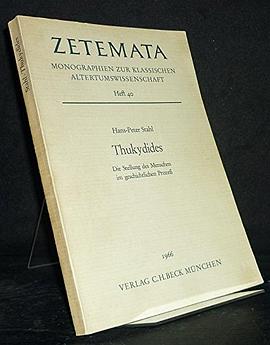

具体描述
War is a harsh teache' wrote Thucydides in the fifth-century BC. Rood analyses the techniques through which Thucydides' narrative explains the origin and course of the Peloponnesian War and exposes harsh truths about how individuals and states behave. Rood concentrates on how the use of techniques, such as selectivity, interaction of speech and narrative, and manipulation of time and perspective, points at one level to general human constraints, at another to the self-destructiveness of Athens' imperial power. The book explores some techniques that have received little attention and offers new ways of reading others; it gives new insight into Thucydides' sophistication and the way he relates to his predecessors. It is also important for its attempts to refute views that Thucydides' History is made up of different compositional strata or inspired by pro-Athenian bias. And it addresses directly the way modern historians use Thucydides, contributes to the contemporary debate over narrative history, and shows the value of applying some of the concepts of recent narrative theory to historical texts.
I. Interpreting Thucydides
1. Introduction: History and Literature
2. The Analysis of Narrative: Pylos
II. Time, Perception, Knowledge
3. Perceptions: Towards Peace
4. Misreadings: Book V
5. Temporal Manipulation
III. Explaining Defeat
6. Selectivity and Omission: Athenian Politics
7. Athens and Sicily
8. Nikias and Athens
IV. Explaining War
9. Selectivity and Omission: Book I
10. The Pentekontaetia
V. Continuity and Closure
11. Continuity: Book VIII
12. Conclusion: The Ends of History
作者简介
目录信息
读后感
评分
评分
评分
评分
用户评价
相关图书
本站所有内容均为互联网搜索引擎提供的公开搜索信息,本站不存储任何数据与内容,任何内容与数据均与本站无关,如有需要请联系相关搜索引擎包括但不限于百度,google,bing,sogou 等
© 2025 book.wenda123.org All Rights Reserved. 图书目录大全 版权所有




















